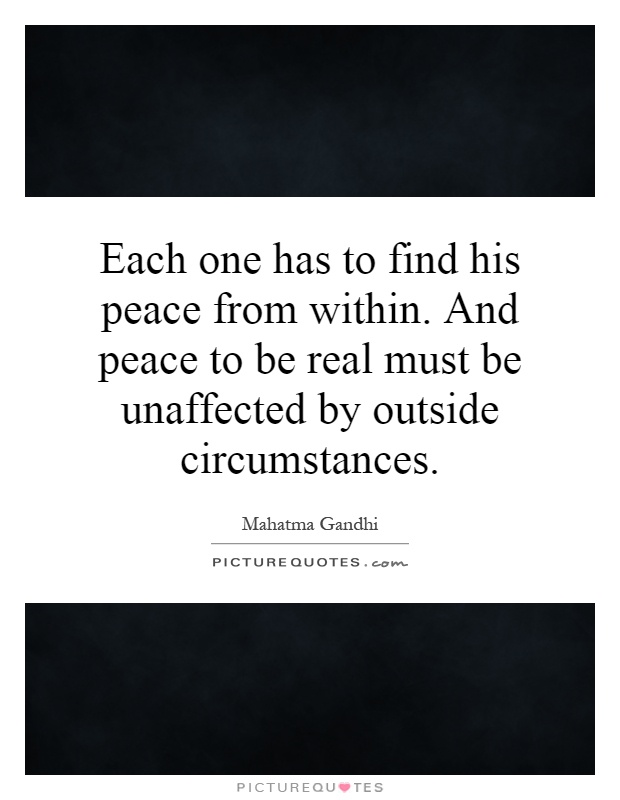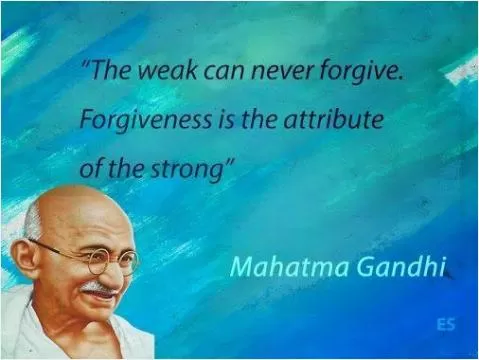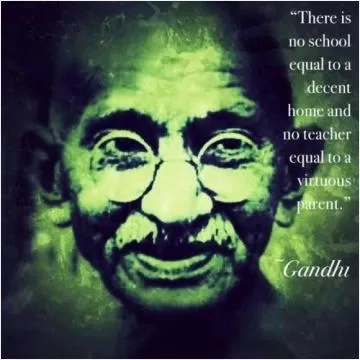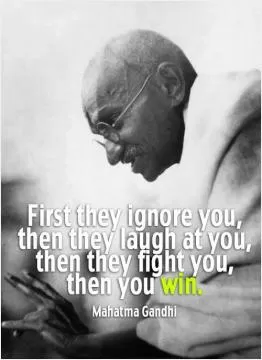Each one has to find his peace from within. And peace to be real must be unaffected by outside circumstances

Each one has to find his peace from within. And peace to be real must be unaffected by outside circumstances
Mahatma Gandhi, also known as the Father of the Nation in India, was a prominent leader in the Indian independence movement against British colonial rule. He was a firm believer in nonviolent resistance and civil disobedience as a means to achieve political and social change. Gandhi's philosophy was deeply rooted in the idea of finding inner peace and strength in the face of adversity.The quote, "Each one has to find his peace from within. And peace to be real must be unaffected by outside circumstances," perfectly encapsulates Gandhi's belief in the power of inner peace. Gandhi understood that true peace could only be achieved by looking inward and finding a sense of calm and tranquility that was not dependent on external factors. He believed that external circumstances, no matter how challenging or difficult, should not be allowed to disrupt one's inner peace.
Throughout his life, Gandhi faced numerous obstacles and challenges, both personally and politically. He was imprisoned multiple times, faced violence and persecution, and yet he remained steadfast in his commitment to nonviolence and peace. Gandhi's ability to maintain his inner peace in the face of such adversity was a testament to his unwavering belief in the power of inner strength.
Gandhi's philosophy of finding peace from within also extended to his approach to conflict resolution. He believed that true peace could only be achieved through nonviolent means and that violence only begets more violence. Gandhi's famous Salt March in 1930, where he led thousands of Indians in a peaceful protest against the British salt tax, is a prime example of his commitment to nonviolent resistance.












 Friendship Quotes
Friendship Quotes Love Quotes
Love Quotes Life Quotes
Life Quotes Funny Quotes
Funny Quotes Motivational Quotes
Motivational Quotes Inspirational Quotes
Inspirational Quotes